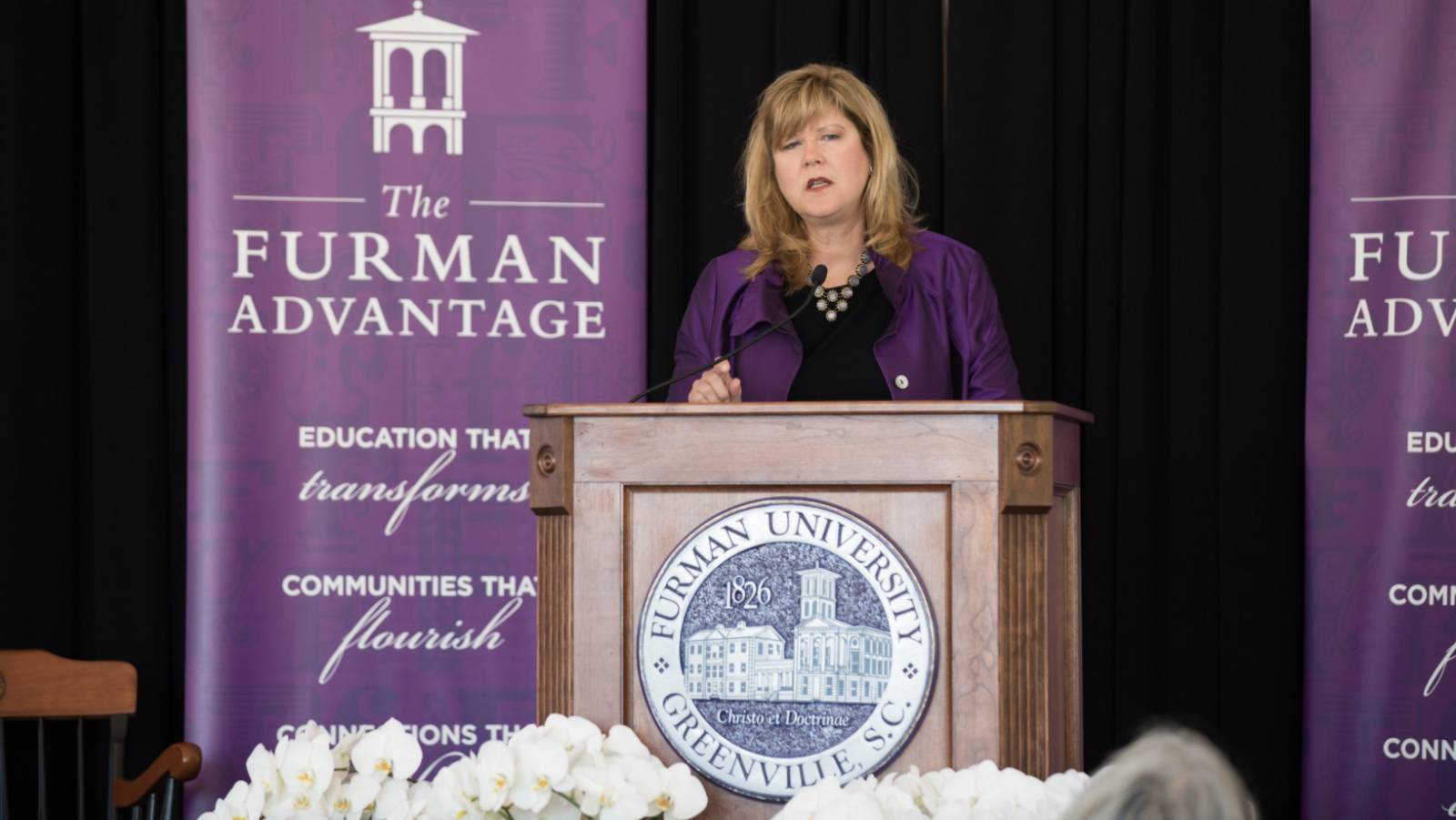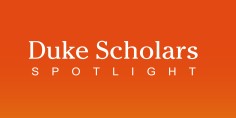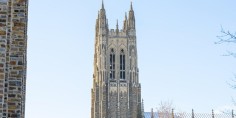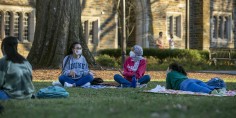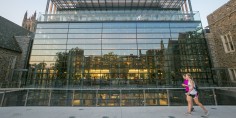When leaders at Furman University talk about The Furman Advantage, they often use the word “transformational.” Elizabeth Davis, the university’s president since 2014, says that’s intentional.
“By preparing students for lives of purpose and accelerated career and community impact, we believe we’re altering the trajectory of their lives,” she says. “When students leave here understanding what is meaningful and consequential about their life, that is absolutely transformational.”
Launched in 2016, The Furman Advantage is the university’s signature approach to ensuring that each one of its graduates is “ultra-prepared for anything.” It includes a personalized four-year pathway with academic advising, mentoring and career guidance along with engaged learning experiences such as undergraduate research, internships or study away.
A $25 million grant from The Duke Endowment helped the program begin; a new $25 million grant — announced in March — is helping Furman build on its success.
During a recent Zoom interview, we asked Dr. Davis to discuss The Furman Advantage, how she plans to advance it, and what it has been like to lead the campus through COVID-19.
Q. Why is expanding The Furman Advantage important now?
A. We designed The Furman Advantage with a vision for every student, and we were able to use the first grant from The Duke Endowment to operationalize it. We were very methodical in how we built out the infrastructure, which allowed us to learn along the way. The new funding will help us continue to build on what is working.
Q. The coronavirus pandemic continues to have a deep impact on campuses across the country. With all the challenges brought on by COVID-19, why is this a priority?
A. The Furman Advantage is giving our students the tools to rise and persevere through these unprecedented times. We are preparing them for lives of purpose and impact. We’re providing a guided blend of experiences that can help them launch into that good first match, whether it’s employment or graduate school. We’re building a strong foundation of academic, social and coping skills to strengthen resilience.
Because our mission is defined by The Furman Advantage, we had a clear vision for where we needed to head when we needed to adjust and reallocate resources during COVID. We know what is creating value. We had a plan and a focus, which we continued to execute even amid a health and economic crisis.
Q. With the new grant from the Endowment, one plan is to expand the two-year advising curriculum called Pathways. Tell us about that.
A. Pathways is key to The Furman Advantage. It provides targeted advising and mentoring for first- and second-year students in small classes with a single advisor. It eases the transition to college and helps students explore, to learn how to develop their independence, and to start thinking about vocation and what they do best. As opposed to thinking about a degree, they think about their skillsets that will serve them well beyond Furman.
In the first years of The Furman Advantage, we developed the pilot for Pathways, which has reached about 450 students in four cohorts. We hope it can expand to reach all first- and second-year students.
Q. For four years in a row, U.S. News & World Report has ranked Furman among the nation’s most innovative schools. How does that resonate with you?
A. It’s wonderful because our colleagues recognize that we’re doing something different. ‘Most innovative’ is a fill-in-the-blank ranking, which means that participants are asked to name up to 10 schools. They clearly have Furman on their minds to fill the blank with our name.
Q. Any predictions for what next year will be like on campus?
A. We’re planning for a normal semester, but if that’s not possible we know how to pivot.
Q. How will Furman emerge from this crisis?
A. For several years, higher education leaders and scholars have acknowledged the need for disruption to the higher education model. The pandemic has accelerated this need. What pundits are calling for are programs that look a lot like The Furman Advantage. We can continue our trajectory of making a difference for our students, our community and, we hope, for higher ed.

